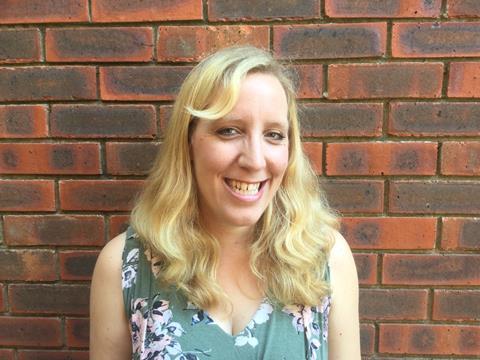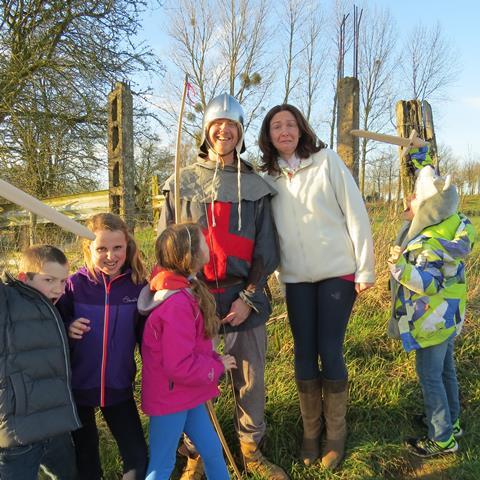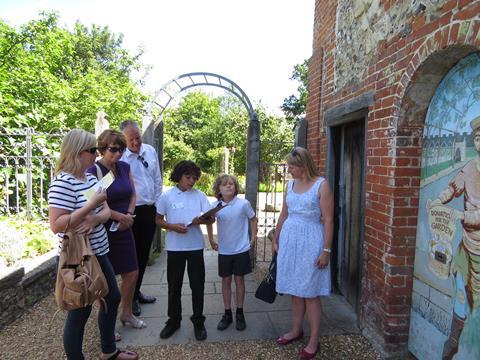With just under 200 pupils and founded by the family of Florence Nightingale, who donated the land and money for it to be built in 1875, Wellow Primary School has a fascinating history.

Kerry Somers is a Year 5 teacher at Wellow Primary School in the village of Romsey, Hampshire. The school logo represents the famous nurse with its symbol of a lamp, and embodies the school philosophy which is to light the pathway to lifelong learning.
What are your main aims when organising trips?
Trips are planned to stimulate and engage the children, truly enhancing all areas of the curriculum. We use trips and experiences to give our children a real love for learning, bringing topics alive and helping them to explore their own lines of enquiry. We aim to inspire and engage them in interesting and relevant learning that helps them become good citizens of the future.
Is the association with the Nightingale family incorporated into trips outside the classroom?
Pupils are rightly very proud of the connections, and we maintain close links with the community church. Pupils regularly walk the routes that Florence herself would have taken and participate in, and lead, their own services.
What are some of the trips you have organised?
The children have learned to be geographers, navigating their way through forests, planning developments and discussing the pros and cons of tourism. They have experienced being writers in the real world, including blogging for Paultons Park, reviewing a show for the Mayflower Theatre and even working on a film in conjunction with the local university to publicise a local farm. They have learnt to be team players on residential trips, scientists, working with university lecturers to explore materials and historians, sharing their knowledge of the past.
Is there a particular subject you focus on?
History is a strength of the school. Historical anniversaries and events are often in the news and commemorated both locally and nationally. Getting our budding historians involved in topics relating to these can really help the children feel the importance of their learning, help them to appreciate the past and feel a sense of responsibility, a sense that they can make a difference to the future.

Do you ever go on any overseas trips?
In 2015 we were one of only five schools in the country chosen to take part in a trip to France to commemorate the 600th anniversary of the Battle of Agincourt. The battle is of particular relevance to Hampshire as Henry V’s soldiers would have been camped in fields across the county before leaving, awaiting orders to board the hundreds of ships gathered at Southampton’s port. The children visited Agincourt Museum in France.
We understand your trips have even brought the children into contact with present-day royalty?
We contacted the Royal Navy and asked about the commemorations taking place for the centenary anniversary of the S.S Mendi, which sunk after being hit by another British ship, the Darro, in thick fog off the Isle of Wight in 1917. After hearing about our work in school, the children were invited by the South African defence advisor to take an active role in the commemoration. Alongside Princess Anne and dignitaries from Britain and South Africa, the children laid a handmade wreath crafted with their own flowers.
Is there a destination you would like to visit in the future?
Hillier Gardens does a great archaeological dig for children to uncover the past and our children would love a trip to the Mayflower Theatre to explore a topic through one of the many workshops they offer. When I was a child in Year 6 there was one trip that made a real impact on me - Blists Hill, Shropshire - it was like stepping back in time.

What are some of your tips for organising a successful educational visit outside the classroom?
Think carefully about what you want the children to gain from the trip. Talk to the provider beforehand so they understand what you expect from your visit. From experience, most places will adapt the activities they offer to suit your needs. If you’re running the visit yourself, do a pre-visit, considering how you will engage the children in their learning. It seems obvious but always put yourself in the children’s shoes. If you find the site boring and uninspiring, the children will too!
What would you say to teachers who might be nervous about organising a trip?
Go for it! Learning outside the classroom is a great way to engage your children in their topics, bringing subjects alive. It’s so rewarding to see the children excited about their learning and fantastic to give the children a range of experiences they might otherwise never have the opportunity to do.










